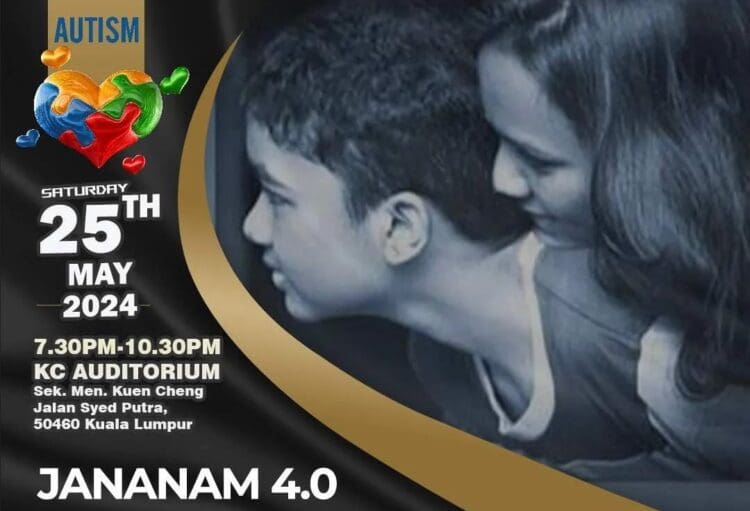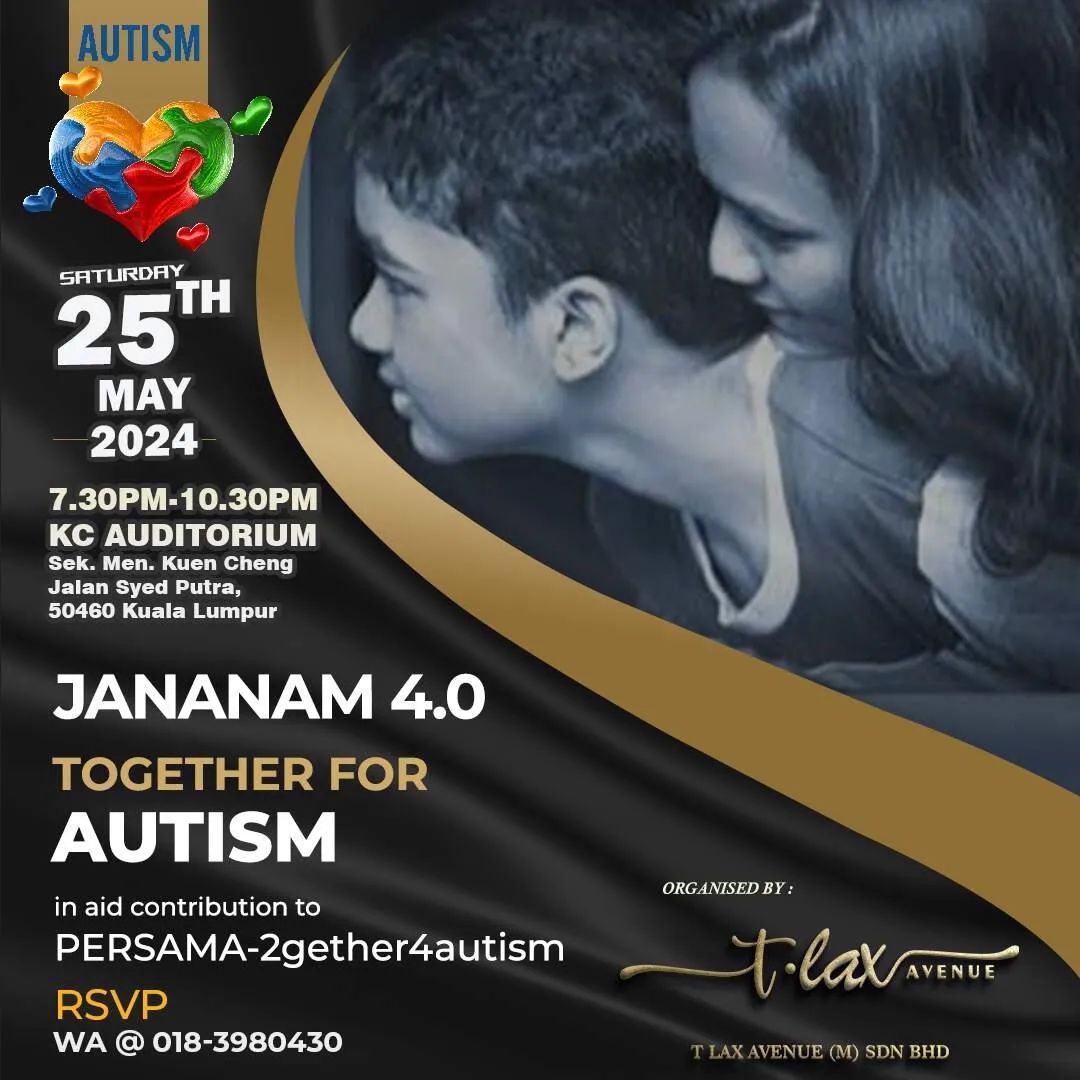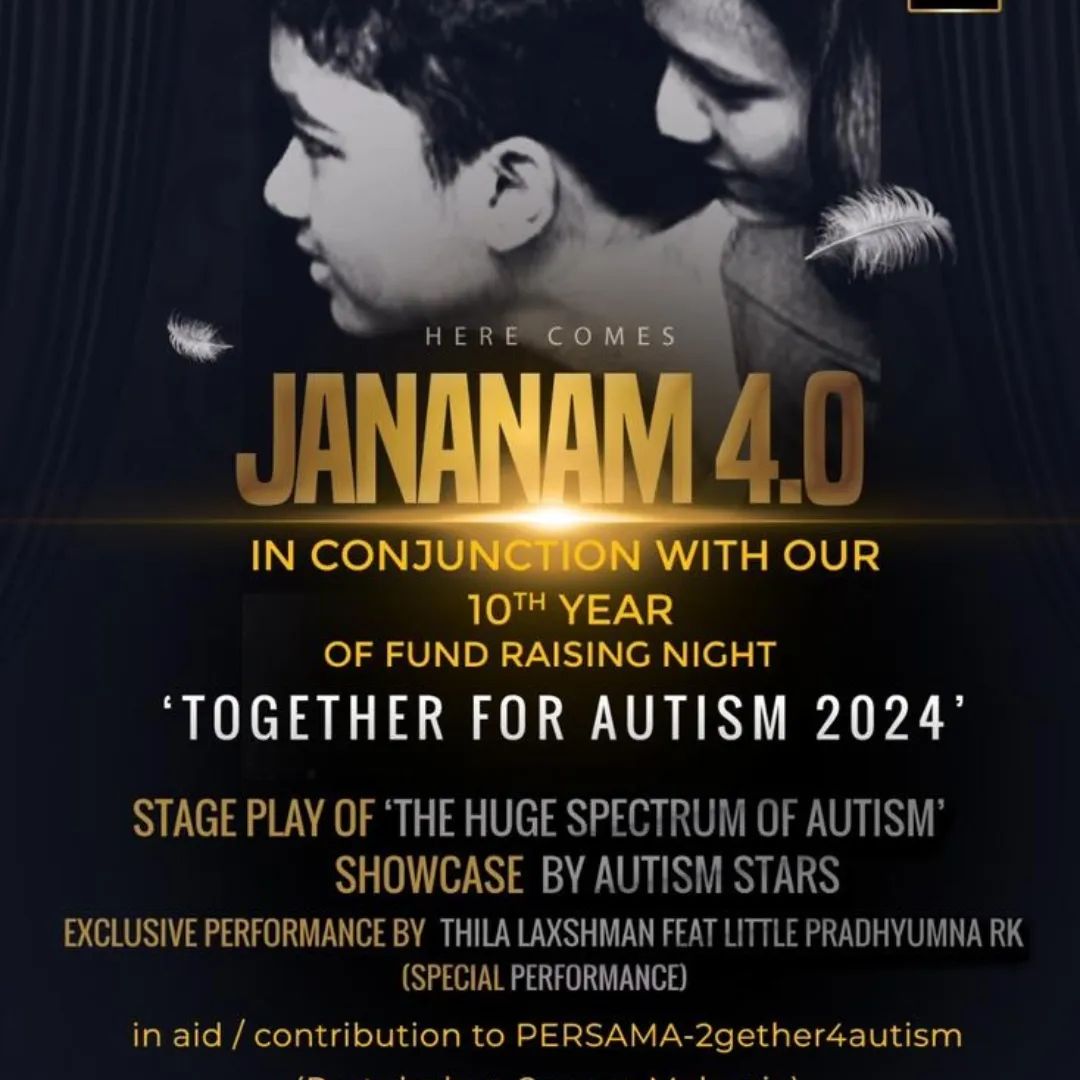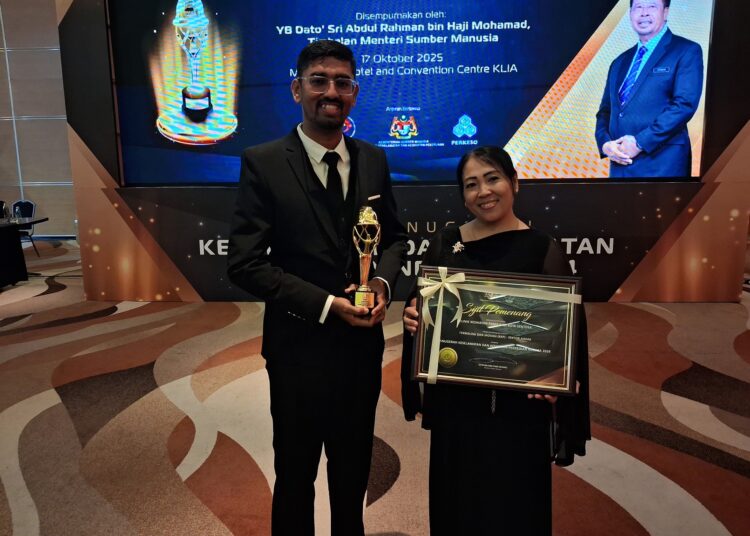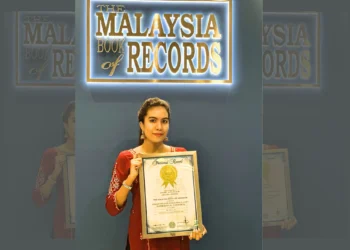Renowned singer and social activist Thila Laxshman’s dream project Jananam 4.0 is back again after a 5-year hiatus. The performing arts fundraising event will be happening on Saturday, May 25, 2024, at 7:30 p.m. at the KC Auditorium, Kuen Cheng High School, Kuala Lumpur. The fundraiser is organised with the noble ambition to redeem her NGO, Pertubuhan Sayang Malaysia’s, office space as well as continue the free mental health services they provide to autistic children and their parents.
Thila Laxshman: From Singer to Social Activist
Thila Laxshman, a native of Port Dickson, is a household name when it comes to the Malaysian music and entertainment industry. The legendary artist is a multilingual singer and emcee with astounding fluency and depth in expressing herself in Tamil, English, and Malay. Thila has been the voice behind some of the greatest and most memorable Malaysian Tamil songs, such as Jay’s Ennule Ennule from Yaar Kutram and Saran Z’s Ennavaley. Her music has been on the Top 10 list of many Malaysian Tamil radio stations, and along with that, the talented singer had also been a seven-time nominee for the Anugerah Industri Muzik Malaysia. In addition to her singing, she has also been working as an exceptional and entertaining emcee across the three languages she is fluent in.

Thila’s career took a turn after her marriage and the birth of her son, Danvi, who at first was born as a normal child but later, at the age of 3 and a half years old, was diagnosed with autism. The news had come as a shock to the new mother, who had to quickly grapple with the responsibility that came with raising an autistic child. Thila had quit her job to focus her entire energy on raising her son with all the compassion and skills that he would need. She had begun taking part-time classes at a Singapore-based college while she was caring for Danvi, where she studied for a diploma and an advanced diploma in ABA (Applied Behaviour Analysis) and Child Psychology, wanting to know all that could be learned about properly nurturing an autistic child. Thila mentions how out of every student in her batch, who were all mostly studying to work in the field of mental health, she was the only one who was a parent who was devoting her time to properly educate herself on her child’s condition.
Because of the financial cost that came with caring for her son, Thila had to get back to working in the entertainment industry. She would often be met with many difficulties, as she would sometimes be late for shows, shootings, and studio recordings because something unexpected would have happened at home with her son. Throughout it all, Thila says that her mother has been the greatest pillar of support for her in caring for and raising Danvi. She expresses how the amount of compassion and unrelenting love that her mother had poured into herself and Danvi was something that she could never repay her mother for.
Forming Pertubuhan Sayang Malaysia

Before beginning her NGO Pertubuhan Sayang Malaysia (PERSAMA) Thila would often give personal one-on-one advice to parents seeking more information on raising autistic children. While this individual approach was for a noble cause, Thila would often be met with backlash from people who questioned her legitimacy. As a way to properly administrate her advocacy and for a more organised approach, Thila began her NGO, aiming to reform and aid B40 families raising autistic children while also gaining mental and moral support for themselves as well. In order to maintain the operations of her organisation, Thila contributes part of her own earnings to regulate her advocacy work. Currently, her NGO has seven full-time members who are working alongside Thila to aid the public.
Thila details how B40 families in particular struggle to care for themselves and their autistic children, and that is precisely why all the services that her NGO provides are completely free of charge and accessible. Some of the services that her NGO provides are yoga therapy, art therapy, and mental health counselling for parents of autistic children. Thila mentions that while support is needed for autistic children, there are very few spaces that provide the moral support and community that aid parents of autistic children, who are also heavily affected by the responsibility that comes from raising their children. Some parents face severe depression, anxiety, and even suicidal tendencies. Thila herself notes that because of her son’s sleep disorder, which forces him to be awake most of nights, she hasn’t gotten more than 3 hours of sleep for the past few years, which has made her develop a mild brain stroke. Just like Thila, many other parents are heavily affected by the responsibility of caring for their autistic children. That’s why Thila’s NGO is an utmost necessity, because it not only provides services for the most underprivileged class of Malaysian society but also provides them for free.
Jananam 4.0
The upcoming Jananam 4.0 is the fourth installation of Pertubuhan Sayang Malaysia’s fund-raising programme. This event is happening again after five years of hiatus and is the dream project of Thila, one that she has been tending to for many years now. Thila expressed that the word Jananam itself bears the meaning of birth, and for Thila, the labour and love she has poured into this project is a process of healing and rebirth for her. It is a way for her to reclaim her power and reemerge as a stronger and more rooted version of her spirit and soul. The aim of the fund-raiser is to collect enough donations that will help save their office space, which is at risk of being lost.
The event will feature singing performances by 10 teenagers, which will mostly be in Tamil with a few songs in English. Along with that, there will also be a play performed that is centred on the character of a working-class single mother and her struggles in raising her autistic child. The play will be performed bilingually in Tamil and English, with the aim of educating the audiences about the great hardships and pain, working-class Malaysian parents go through in trying to raise their differently abled children. The play is also aimed at expressing how diverse and varied autism is, breaking away from the stereotype that autism is a uniform condition that expresses itself the same way in all individuals. Thila stresses that the public needs to understand that autism is a spectrum and not a linear condition.
As for the future aspirations of the NGO, Thila shares that she is currently planning to conduct paid vocal classes that will financially fuel the free services that her organisation provides. She shared that it was crucial that the public come out to support Jananam 4.0 so that the NGO can continue to provide the free vital advocacy services that are necessary for the survival and health of parents and their autistic children in the B40 community.
Advocating for Parents of Autistic Children
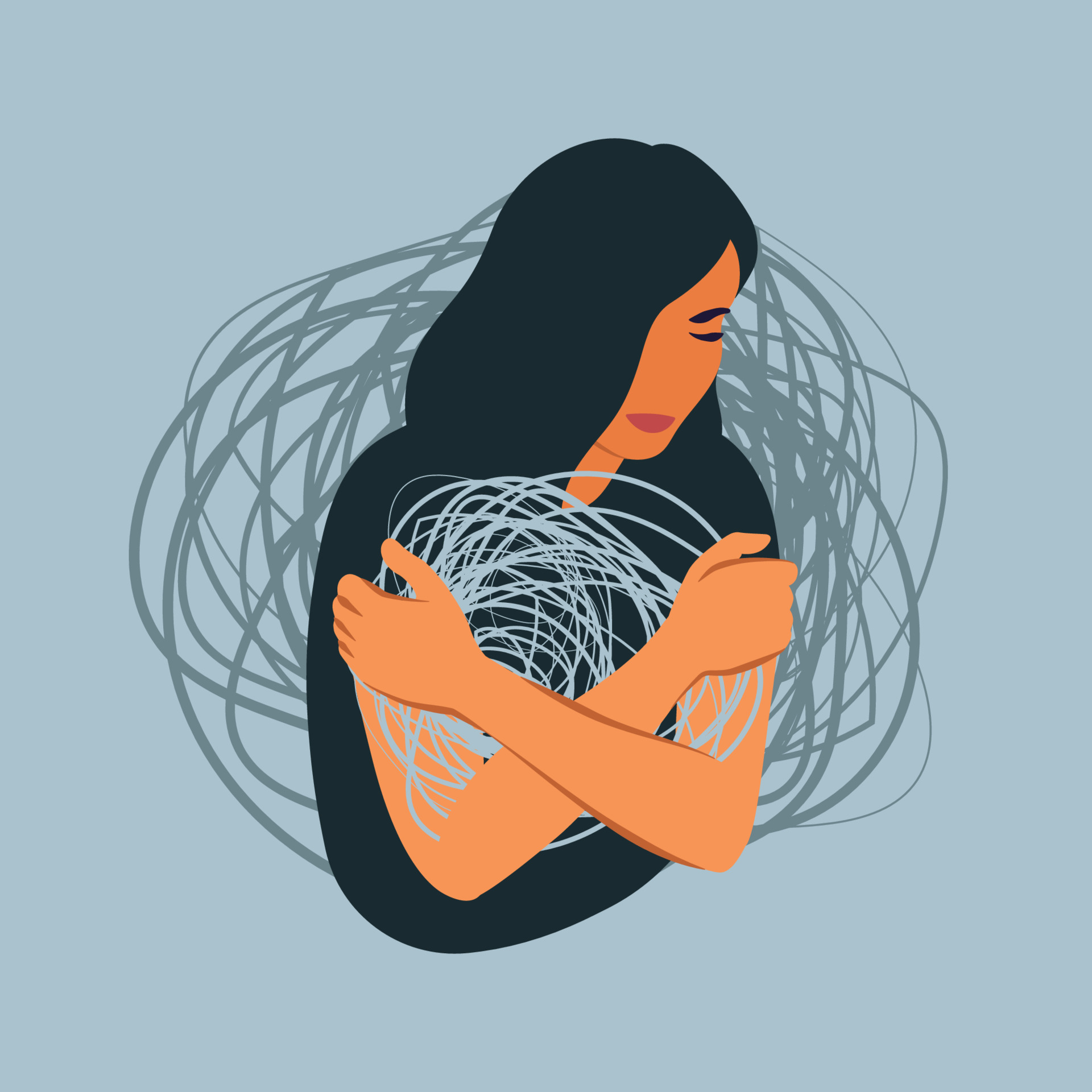
Something that Thila’s organisation provides that is often not highlighted in society is the support needed for parents of autistic children. She expresses that it is often parents who are more in need of support compared to the autistic child. She states that many B40 parents who do not have access to mental health services and other skills needed to care for their autistic child often end up in severe social isolation and helplessness. Some parents go to the extent of arguing with each other, causing strain and separation in their marriages; other parents are drastically affected by mental disorders; some even wish that their children should die before they do, so their children wouldn’t suffer without their care. Because of the lack of proper education on autism, some parents even feel ashamed to register their children as OKU. This decision seriously affects the data that is available to the government on the status of disabled people in Malaysia, further obstructing the government from properly implementing reforms.
This is why Thila’s NGO is important because it provides a free space where working-class parents can receive the moral, mental, and structural support they need in order to sustain themselves and properly raise their autistic child. The organisation provides parents with a healthy and healing network that allows them to be vulnerable and receive the help that they lack from the government and society.
On Government Reforms and Public Acceptance
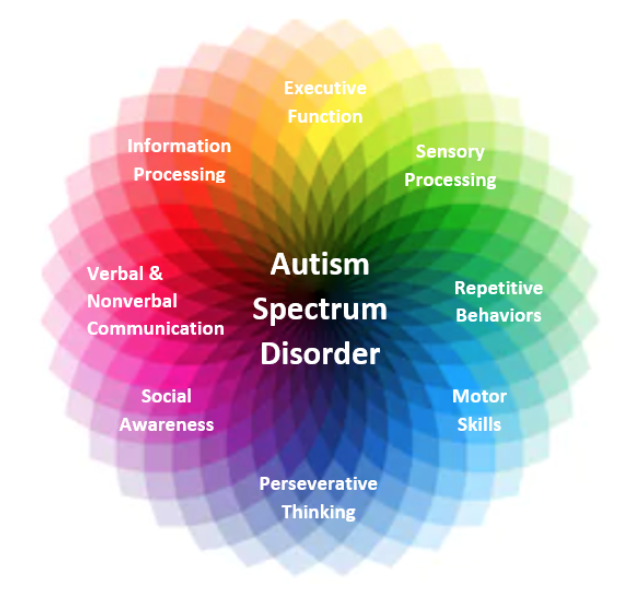
Thila stresses that even though she puts in her own effort to advocate for autistic children and their parents, it is even more crucial that the Malaysian government implement more reforms, and the Malaysian people should also practice more patience and empathy when it comes to families caring for an autistic individual. Thila had spoken of how, compared to a few years ago, the Malaysian government has been more receptive to learning about autism, but there are still yet to be any substantial policy reforms that would actually materially aid autistic children. She stresses that the government must come forward with more Early Intervention Centres (EIC), and that there should be more vocational skills that should be accessible to autistic children, specifically those coming from the B40 category. Thila shares that, for many parents of autistic children, the future of their children is often something they fear. Parents express anxiety over the wellbeing of their children after their passing, afraid that their children would be abandoned in welfare homes, vulnerable to abuse and exploitation. That is why it is necessary for the government to implement policies where autistic individuals can learn some form of autonomy.
As for the public, Thila hopes that Malaysian society will take it upon itself to learn and educate themselves about the diverse nature of autism beyond what they view through television and their immediate surroundings. She states that autism is varied; some individuals are non-verbal, some have lost social skills, some have dementia, problems concentrating, and many more. Autism is much more complex than what is publicly known. So in order to build a more compassionate and supportive society, Thila hopes that the public at large will bear the social responsibility to be more understanding towards autistic individuals and their families.
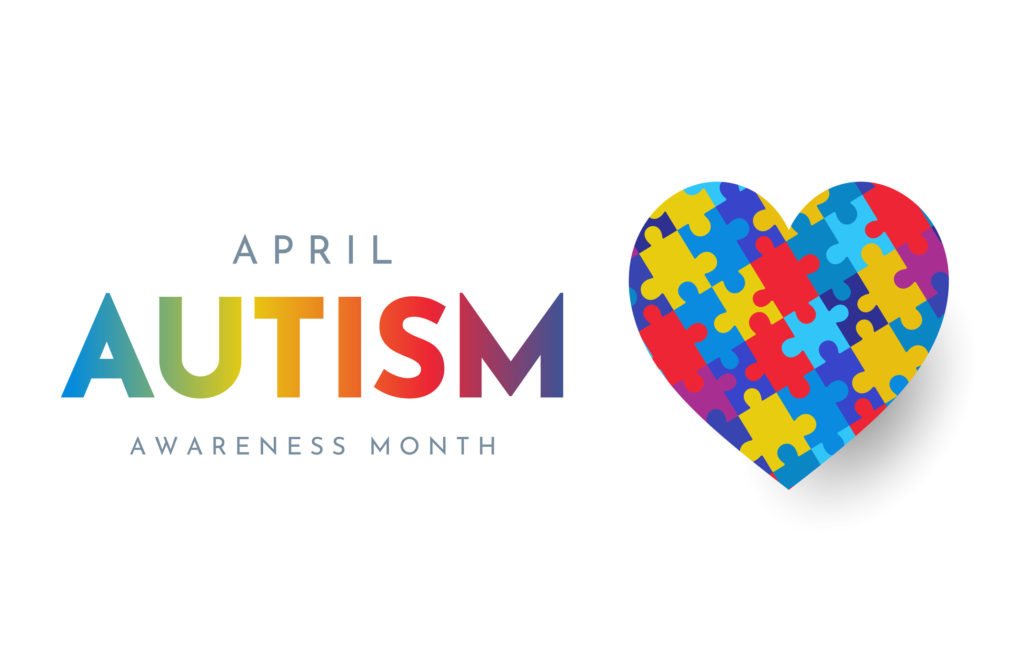
On the occasion of World Autism Month, it is important that individuals, communities, and governing bodies come together and aid all those who are vulnerable and affected by autism, be it individuals or their families that care for them. As a civilised society, we need to progress past punishing and humiliating autistic individuals and their families and transform our society into one that is truly and sincerely welcoming, accommodating, and equal for all.
Jananam 4.0 will be happening on Saturday, May 25, 2024, at 7:30 p.m. at the KC Auditorium, Kuen Cheng High School, Kuala Lumpur.
For more details on donations and purchasing tickets, please contact: 018-3980430.
This is a Varnam Exclusive Feature! Reproduction requires a credit to Varnam Malaysia.
Follow us on Instagram, Facebook or Telegram for more updates and breaking news.


